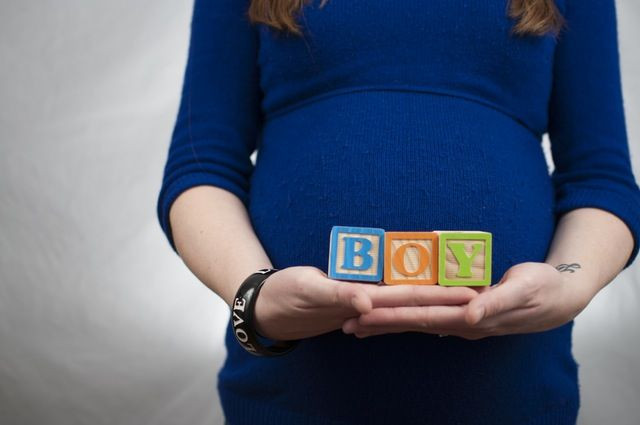The Science Behind ‘Pregnancy Brain’: Why Pregnant Women Experience Grey Matter Loss, Neurological Changes

Most pregnant women will admit to bouts of "pregnancy brain" — whether it's forgetting doctor's appointments or forgetting their own phone number. This pregnancy-induced mental fog is part of the neurological changes at the start of pregnancy that continue throughout postpartum. But why do they occur in the first place?
Researchers at the Autonomous University of Barcelona suggest changes in brain size and structure during pregnancy may be beneficial in promoting mother-infant bonding.
Read More: Does Pregnancy Brain Really Exist?
"The findings point to an adaptive process related to the benefits of better detecting the needs of the child, such as identifying the newborn's emotional state," said Oscar Vilarroya, author of the study, in a statement.
Previous research has found women with growth in the amygdala and the hypothalamus — associated with emotional regulation, survival instincts, and hormone products — had a positive view of their babies and an increase in positive feeling towards them. Meanwhile, researchers at the University of Toronto in Mississauga found women who showed reduced amygdala responses to photos of their babies were more likely to have poorer quality of maternal experience, such as increased levels of stress and anxiety. These women also had a hard time with motherhood.
In the new study, published in Nature Neuroscience, Vilarroya and his colleagues found a reduction in gray matter in several brain areas enhanced women's maternal response for up to two years. A symmetrical reduction in grey matter volume was seen in the medial frontal and posterior cortex line, as well as in specific areas of the prefrontal and temporal cortex in pregnant women. These are the areas that correspond to a network linked to processes involved in social cognition, which is how we process, store, and apply information about other people and social situations.
"These changes may reflect, at least in part, a mechanism of synaptic pruning, which also takes place in adolescence, where weak synapses are eliminated giving way to more efficient and specialized neural networks", said Elseline Hoekzema, co-lead author of the study, in a statement.
The researchers did not observe any changes in memory or other cognitive functions during the pregnancies. This implies the loss of gray matter doesn't have negative consequences on cognitive function. Rather, the loss is part of the brain's mechanism for dealing with the future, or the challenges of motherhood. The hormone surges in pregnancy could help a woman's brain train in the ability to recognize social threats or to promote mother-infant bonding.
Moreover, these brain changes were able to predict the mother's attachment to her baby in the postpartum period. Affected brain regions in mothers showed more activity when women looked at photos of their own babies than with photos of other children. Overall, mothers whose brains lost more gray matter volume showed less hostility and more attachment.
Read More: How A Woman's Body Changes During 9 Months Of Pregnancy
The images from the brain scans were so clear, they could indicate which women has been pregnant. The researchers noted they did not yet know what was being reduced in size: neurons, other brain cells, synapses or parts of the circulatory system.
The study, which took more than five years, involved 25 women in their 30s in Spain who had never been pregnant, but hoped to conceive. Their brains were scanned before becoming pregnant and within a few months after giving birth. In addition, 20 women who had never been pregnant were also scanned twice, for about the same number of months apart.
Many of the women had been recruited for the study at a fertility clinic, and the 16 who conceived after fertility treatment were compared with nine who conceived naturally. Fertility treatments did not cause a difference in brain changes, nor did the sex of the babies.
Two years after they gave birth, the brain scans of 11 women who had not had second children showed the same gray matter loss in the same areas, except for an area in the hippocampus, which had regained volume. The researchers suspect the growth of the hippocampus could be linked to all the learning and activity new mothers begin to engage in.
In addition, the brains of 17 men who were not fathers, and 19 first-time fathers before and after their partners’ pregnancies. The two male groups showed no difference in brain volume.
The findings have clinical implications for women with postpartum depression. Understanding changes in brain volume during pregnancy can help doctors determine what women are at risk for postpartum depression, and how they can prevent it.
Source: Hoekzema E, Barba-Müller E, Pozzobon C et al. Pregnancy leads to long-lasting changes in human brain structure. Nature Neuroscience. 2016.
See Also:



























